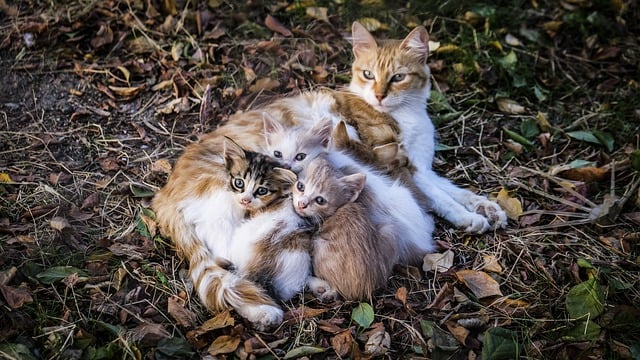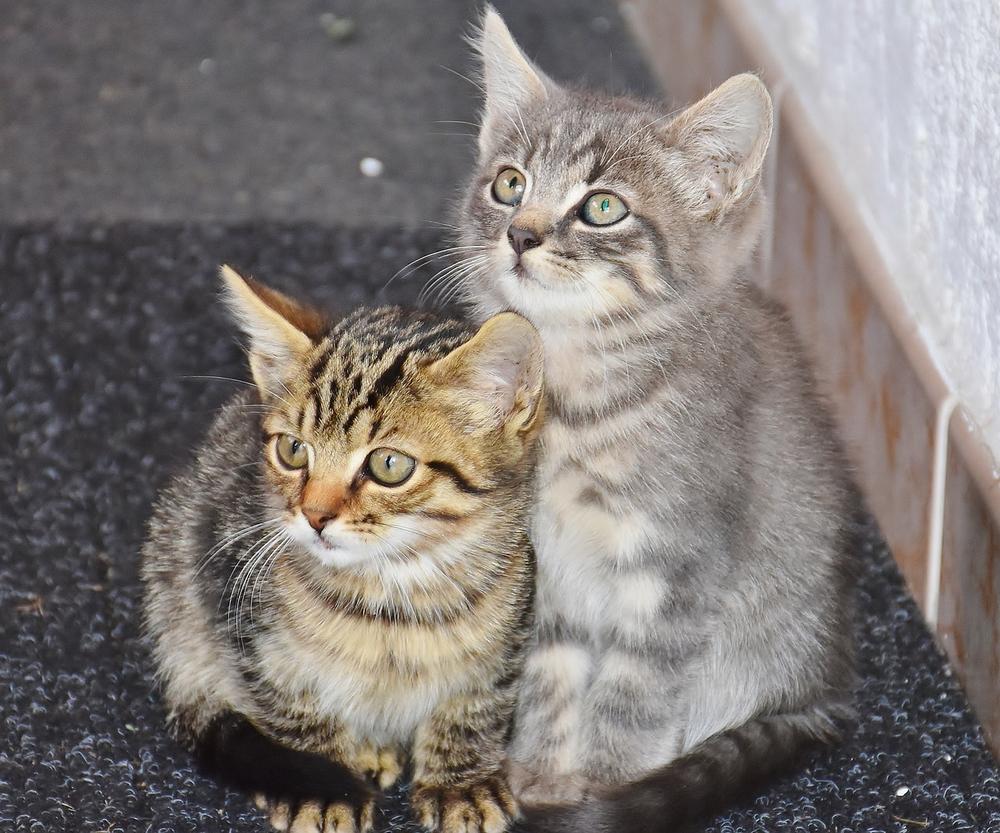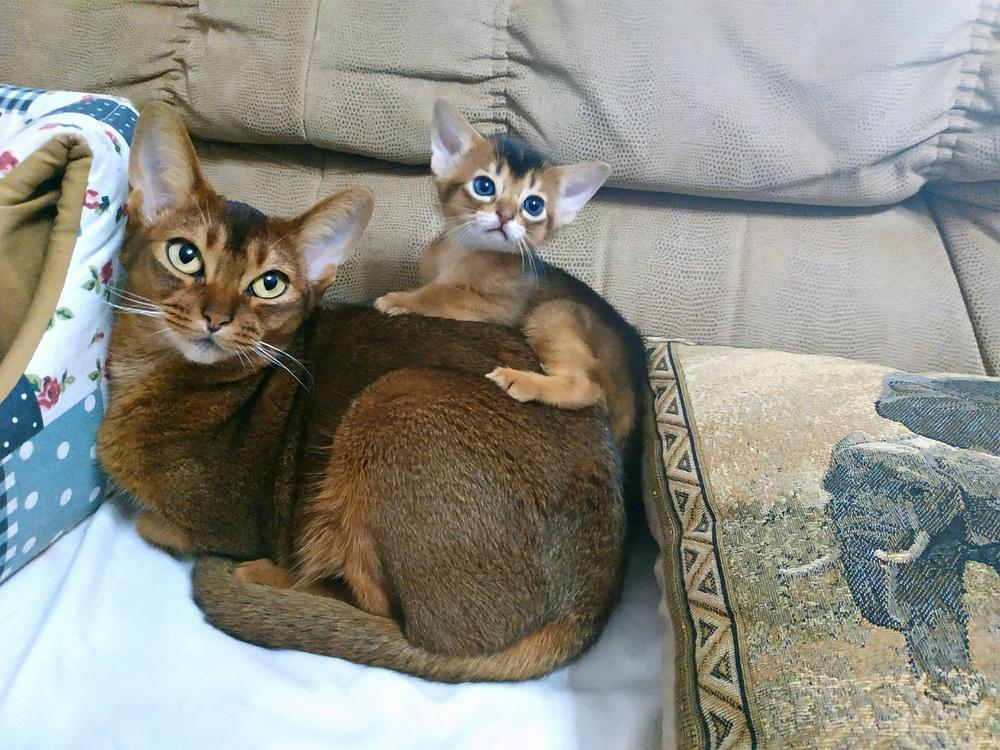Can a Nursing Cat Get Pregnant? (Answering Common Concerns)

Visualize this:
You're snuggled up with your adorable nursing cat and her precious kittens, their sweet little faces melting your heart. 😍
But lurking in the back of your mind is that niggling fear of an unexpected pregnancy.
Will your beloved kitty be able to handle it all?
Let's dive into the truth of the matter, put those worries to rest, and ensure you can continue to adore those cuddly bundles of fur without a care in the world.
Keep reading for all the answers you seek.
What Happens When a Cat Gets Pregnant Again While Nursing?
So, you’ve got yourself a new cat momma who's busy nursing her super cute little kittens. 😻
I mean, how adorable is that, right?
But let me tell you, it's no walk in the park for her.
But here's the thing, what happens if she gets pregnant again while she's still taking care of her current litter?
It's something you gotta think about, my friend.

Here are some things you should bear in mind:
- Having another pregnancy on top of nursing can really tire her out and deplete her energy and nutrients. Taking care of one litter of kittens already takes a toll on her body, so imagine adding another pregnancy to the mix!
- Believe it or not, female cats can get pregnant pretty soon after giving birth. It's like their timing is impeccable. They're ready to mate again as soon as they pop those kittens out or when the little ones start becoming more independent.
- If you want to be smart about it, getting your cat spayed is the way to go. Not only does it prevent unwanted pregnancies, but it also comes with health benefits for her. So, it's a win-win situation, really.
- Now, here's an interesting tidbit: lactation actually acts as a natural method of birth control for nursing cats. Pretty cool, huh? But you shouldn't rush into another pregnancy right away. Give her a few months to recover first.
- During her nursing period, it's crucial to keep her away from any male cats who haven't been neutered. We definitely don't want any surprises or accidental pregnancies happening, right?
- Oh, and there's this thing called "allosuckling" where related female cats nurse each other's kittens. Sounds nice and all, but it can actually cause some issues with the nursing hierarchy and bonding between the momma and her own kittens. So, keep an eye on that.
Being a responsible cat owner means taking steps to prevent the population from getting too big and ensuring the well-being of your furry buddies.
Trust me, it's worth it.
And hey, before you go, I want to share an interesting article that I have written.
You might be wondering...
can a cat live without whiskers? It's a common question, and I've got the answers for you in my blog post called Cat Without Whiskers.
Check it out for all the information you need!
Nursing Cat's Fertility: Can She Get Pregnant?
Unlike most mammals, nursing cats can get pregnant while taking care of their kittens. They can become sexually active at 4 to 6 months old and even get pregnant during pregnancy. You ought to keep them away from potential mates until they are done nursing.
Can a nursing cat get pregnant while taking care of her kittens?
You'd be surprised, but cats are different from most other animals. They have this amazing ability to get pregnant even while nursing their little ones.
Usually, in mammals like us humans, breastfeeding stops the release of eggs.
But not for our furry friends...
Having nursing kittens doesn't stop a cat from getting pregnant.
It's like magic! ✨
So, if you have a nursing cat and don't want any more kittens running around, you need to know when to spay her.
First things first—wait until those adorable fluffballs are weaned and their momma cat is healthy before getting her spayed.
That way, the babies are ready to be on their own, and the mother cat can have the procedure without complications.
Now, let's talk about timing.
Female cats can become sexually active at 4 to 6 months old, and they can even get pregnant during pregnancy.
They sure learn fast, huh?
But here's the catch:
A cat can get pregnant again as soon as one week after giving birth if she mates during her first heat cycle.
This special cycle usually happens about four weeks after the kittens stop drinking milk.
Talk about a tight schedule!
You should note that nursing doesn't stop a cat from going into heat and becoming fertile.
While human moms experience a temporary decrease in fertility while breastfeeding, cats defy nature once again.
So, if you don't want your mommy cat to have another litter right away, ensure to keep her away from potential boyfriends until she's completely done nursing.
Better safe than sorry, right?
Well, now you know—the idea of nursing cats as birth control is just a myth.
Don't underestimate how good our feline friends are at reproducing!
And it's not just the possibility of a nursing cat getting pregnant that you need to be aware of.
There are other signs and conditions to watch out for, which can sometimes mimic pregnancy in cats.
So, let's dive into these indicators and ensure you're equipped with all the necessary knowledge...
Signs of Pregnancy in Nursing Cats
Signs of Pregnancy in Nursing Cats
Well, if you have a nursing cat and you think she might be pregnant again, there are a few signs you can look out for.
Recognizing the Signs
First thing you need to know is that pregnancy in cats usually lasts about 9 weeks.
During this time, your cat may show some typical signs of pregnancy, such as behavioral changes (like being more affectionate or seeking more attention), increased appetite, and weight gain.
You may also notice nipple enlargement. These are all pretty common signs, so keep an eye out!
However, you need to remember that conditions like intestinal parasites or infections can mimic pregnancy symptoms.
So, it's always a good idea to consult your vet if you suspect your cat might be pregnant.
Watch out for Changes
Now, if your nursing cat is showing signs that she might be pregnant again, pay close attention!
Some signs indicating a possible second pregnancy include changes in behavior (like restlessness or aggression), increased appetite, vomiting, nipple swelling, sudden cessation of nursing, enlarged stomach area, halt of heat cycles, and weight gain.
And here's one thing you should really keep in mind: mastitis. It's inflammation of the mammary gland and it's pretty common in nursing cats.
But don't worry, there are various methods available for treating it.
So, if you suspect your nursing cat might be pregnant again, keep an eye out for these signs. And remember to consult your vet for proper care of both the mommy cat and her new kittens.
And it gets better...
Did you know that cats have an innate ability to breed multiple times throughout the year?
In the next section, we'll explore the fascinating world of feline reproduction and learn about the factors that influence a cat's heat cycle and breeding patterns...
Frequency of a Cat's Pregnancy in a Year
| Factor | Information |
|---|---|
| Number of pregnancies | Cats can become pregnant multiple times in a year |
| Kittens per litter | The number of kittens in a litter can vary |
| Age of the cat | Younger cats typically have fewer kittens |
| Heat cycles | Cats go into heat multiple times a year |
| Seasonal influences | Heat cycles can be affected by seasonal changes |
| Responsible breeding | Responsible breeders limit the number of litters for the cat's health |
| Nursing cats and pregnancy | Nursing cats can potentially become pregnant while caring for their kittens |
Cats can have multiple litters, but it's not great for them.
Let me explain.
In controlled environments, cats can breed all year round.
But, breeding too often can harm the cat.
A litter can have one to ten kittens, but usually around 3-6.
Experienced moms have more kittens than newer ones.
Seasonal changes affect a cat's heat cycle, resulting in more kittens born in spring and summer.
Here's how it works:
In colder areas, cats go into heat twice a month for 2-3 weeks, except in the coldest months.
But in warmer places or controlled spaces, cats can go into heat every few weeks, all year long.
Now, don't worry.
You should spay or neuter your cats to prevent too many kittens and extend their lives. Responsible breeders limit litters and give time between them.
The goal is to prioritize the cat's well-being, not just how many litters they have.
It's best to spay or neuter kittens when they're around 4 months old to control population growth and reduce risks from multiple pregnancies.
So, remember that while cats can reproduce many times a year, you need to think about their health and well-being.
Now, you might be wondering how to determine if a nursing cat can still get pregnant while caring for her kittens.
While there are no commercial pregnancy tests for cats like those for humans, veterinarians have diagnostic methods to confirm pregnancy.
So, let's explore how vets can determine if your nursing cat is expecting...
Are There Pregnancy Tests for Cats?
No commercial pregnancy tests for cats like human ones.

Veterinarians use palpitation, ultrasound, or hormone testing to confirm cat pregnancies. Important to spay and neuter pets.
Take queen to vet to confirm pregnancy. Decide whether to spay before or after next kittens are born.
Nursing Cat's Pregnancy: A Complex Reproductive Journey
Key Takeaways:
- Female cats can become pregnant shortly after giving birth.
- It is advisable to spay female cats for both birth control and health benefits.
- Lactation serves as natural birth control, but it is recommended to wait before allowing the cat to become pregnant again.
- Monitoring allosuckling, when related female cats nurse each other's kittens, is important.
- Responsible ownership involves keeping female cats away from intact males and outdoor environments.
- Spaying a nursing cat requires a different procedure.
- Cats can become pregnant again as early as one week after giving birth.
- Pregnancy in cats typically lasts about 9 weeks and is characterized by behavioral changes.
- Multiple recurrent pregnancies with short intervals can harm the cat's health.
- Spaying and neutering pets is important to address pet overpopulation.
And that wraps up today's article.
Before you leave, can I ask you something? Was my blog post helpful to you? If it was, I would be extremely grateful if you could share it with your friends and family. You can simply click any of the social media sharing icons for quick sharing. Thank you so much!
Talk soon,
-Sarah Davis